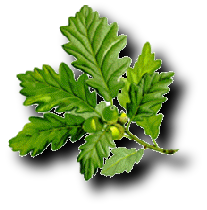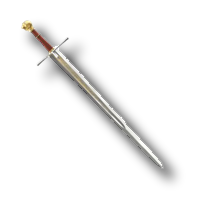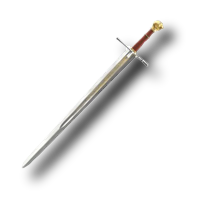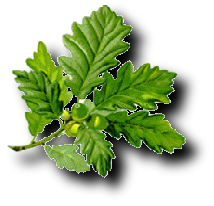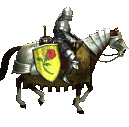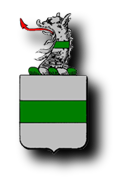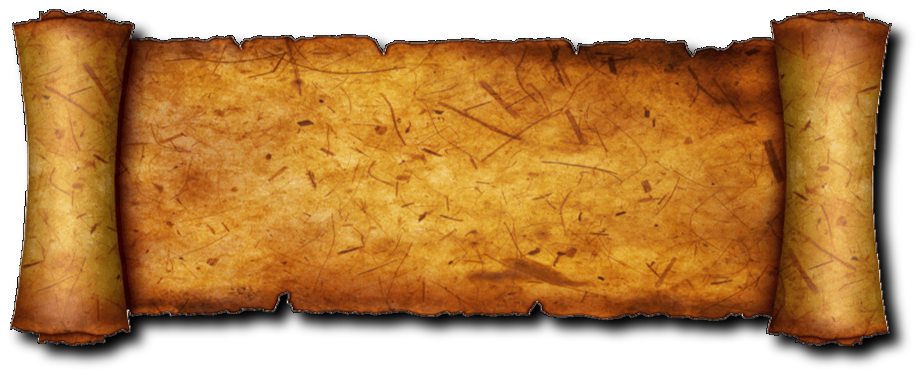
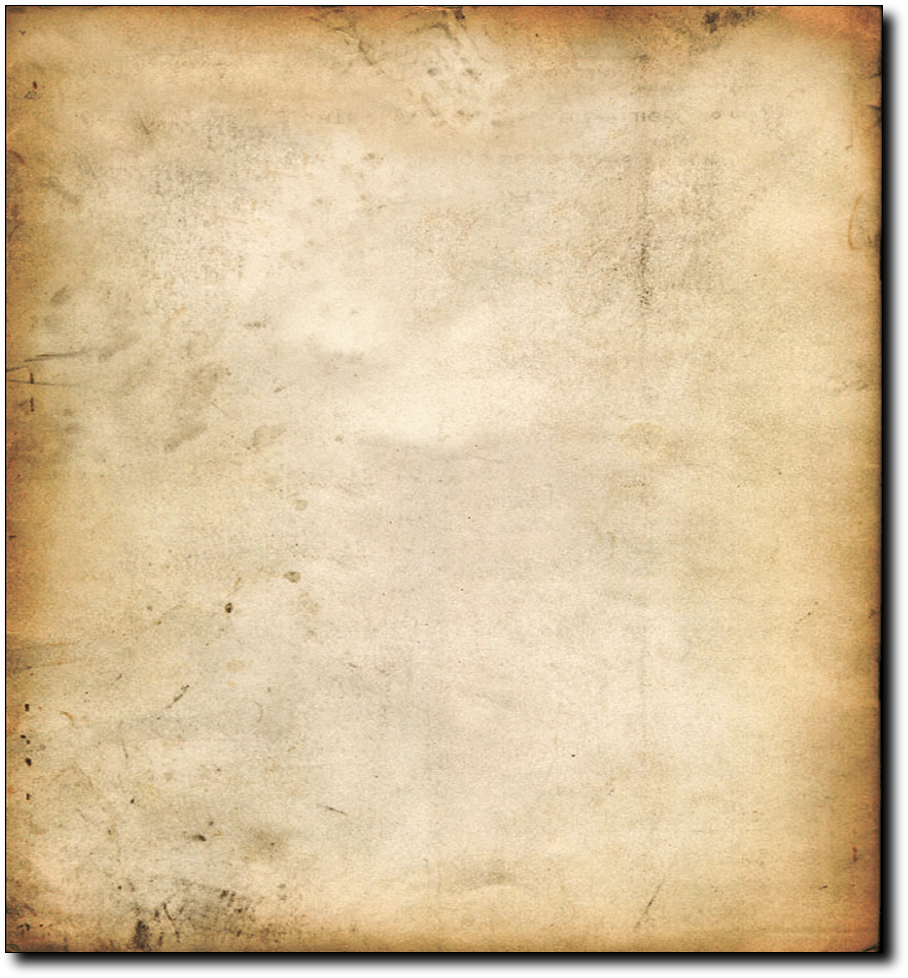
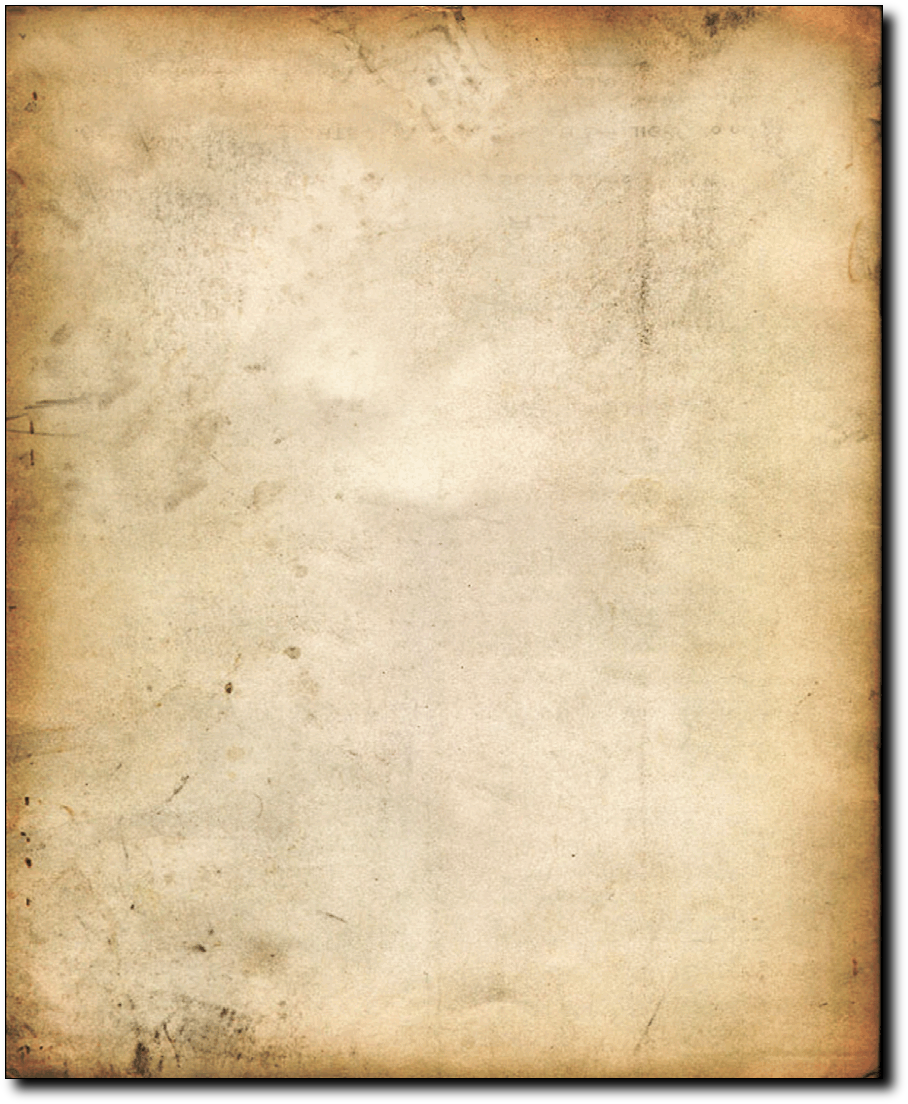
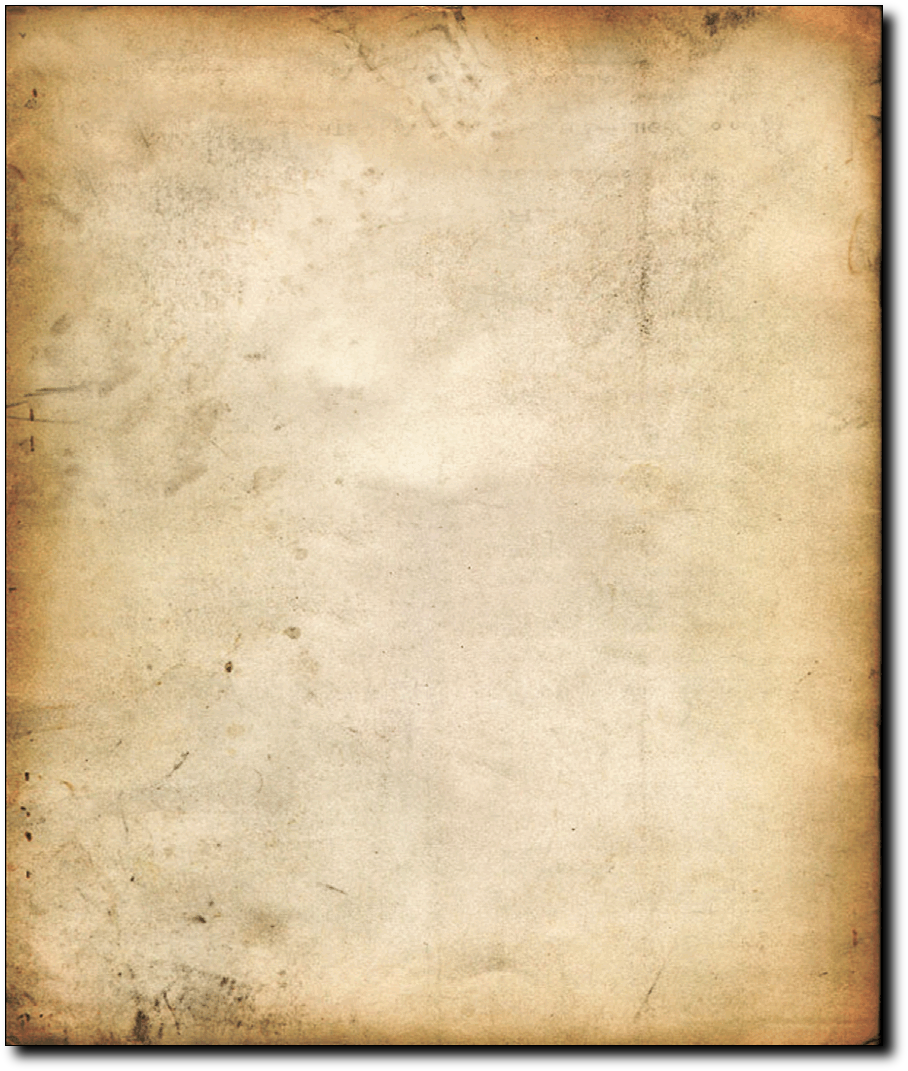



Origin of the family name
The area known as the Land between the Maas (Meuse) and Waal rivers is bordered on the east by a line running from the city of Nijmegen to the town of Mook, on the west by a line running from the villages of Wamel and Heerewaarden, with the Maas forming the southern border, and the Waal the northern border (the Waal is a branch of the lower Rhine after it enters the Netherlands).
The area is mostly low lying country, with higher ground between the two rivers. Historically, before the dikes were built, the area was subject to regular flooding, and this contributed to making the soil very fertile.
It is possible that well before the castle of Druten was built, the site may have been a Germanic manor, and before that a settlement of the Druids. These were the priests of the Celtic people of Gaul and Britain. They did not live an isolated life, and were often married as well, and preferred to live in dense oak forests, holding their gatherings on the neighboring higher grounds. The Land between Maas and Waal lent itself particularly well for this. Beyond their religious duties, they also occupied themselves with natural sciences, astronomy, medicine and lawmaking. The offspring of the most important families vied to become members of the priesthood.
The Land between Maas and Waal also formed the most northern border of the Celtic Menapii and Tungri peoples.
They were frequently at war with the neighboring Germanic tribes of the Chattuarii, Frisians, Batavi and Bructeri to expand their territory.
The Celtic word Druid is, according to linguists, derived from the Greek word “drys”, which means oak, a tree the Druids considered to be holy. The town name Druten then would mean “place of the oaks” or “place of the priests”.
Bron/Source: Chronik Familien Verband “von Drathen” 1928
THE FIRST LORD OF DRUTEN
At the beginning of the Common Era, the Land between Maas and Waal belonged to the Batavi, and formed the northernmost part of “Germania Inferior”, a province of the Roman Empire.
During the 5th century CE, the tribes of the Chamavi, Batavi and the Franks of the region mixed together to form a single people.
At this time arose the so-called “gouen” (counties). At the head of the “gou” (county) was a count. The area between Maas and Waal belonged to “Maasgou”, which was part of the Frankish Empire of Charlemagne. In the year 870, the Land between Maas and Waal became part of the lands of Ludwich the German, and later still, around 1000, it became part of the County of Teisterband, a county that lay to the west. After that, it became part of the County of Kleef, which lay to the east of Nijmegen.
In the annals is recorded that between the years 1125 to 1147 a certain Lord Focoldus wa s called the Count of the Land between Maas and Waal. He founded a monastery north of the town of Heusden, on an island called “Vrota”, located on the border between Brabant and Holland, on the site of his castle, “Bern”. He was involved with many wars with other counties, and he died as a lay brother in the monastery that he founded. His wife also founded a convent, at Wortt, in the area of Maasbommel. This convent was also of the Premonstratensian order.
A sister of Focoldus, Godehildis, was married to ROTGERUS DE DRUTENA (van Druten). The name Van Druten is usually written as De Druten or De Drutena, because all official documents of the time were recorded in Latin.
The first mention of Rotgerus is in the year 1076. He owned the castle Druten (not the Manor/Castle Druten), and is thus the first known Lord of Druten. Unfortunately, nothing is known of his ancestors.
The SUCCESION IN the DRUTENSE LINIE (to see tribe table I and II)
The first Lord of Druten ROTGERUS (St I-I) had two sons: GERHARDUS BREWE DE DRUTEN (Gerrit Brewe van Druten) and ROTGERUS BREWE DE DRUTEN (Roger Brewe van Druten) (St I-II a,b).
It is not known what the nickname “Brewe” refers to. It is possible that it means that each had a claim to a part of the estate. It is also possible that the name was added as an affix to the family name. This affix also appeared in other family names of the period.
However, it was GERHARDUS who became owner of the castle. ROTGERUS became a monk at Honnepel near Kalkar in Germany. They both lived in the 12th century.
The next documented Lord of Druten was ADE (Adam) DE DRUETEN (St I-V). He lived in the 13th century. It is possible that there are two generations between these two ancestors, Rotgerus de Druten and Ade de Drueten. Unfortunately, no names of these two generations were able to be found.
At the beginning of the 13th century, the County of Gelre had claim to the Land between Maas and Waal. This did not have any consequences for the “free estates” of the area, even though the Counts of Gelre sought to enlarge their claims through the use of fiefs.
Up until the 14th century, the estate Druten, as well as other estates of the area, had a free and independent existence, and were only answerable to the Emperor.
The documents from the 13th century are rather sparse. There is one document known, which contains the name “ZEYNE DRUTE”, but unfortunately without any further mention of dates or details. However, from the same century there is a purchase contract, dated May 25th, 1287, which is an important document for the Druten family, which, along with many other documents that will be mentioned later, have remained in original condition and come from the archives of the convent of Gaesdonk, near the town of Goch (Ger.). This contract is for the sale of property (real-estate) near Luenen to the convent by HERMAN and GERLACH DE DRUETEN (St I-VI b,c)., sons of Adam de Drueten (St I-V). Also mentioned are Mechtild and Hylla, sisters, and the wives of Hermann and Gerlach.
From the next century, more documents have been preserved. One, dating to May 22nd 1310, mentions ROUDOLPHUS DE DRUETEN (Rudolf van Druten) (St I-VIIa) as the son of WOLTERUS DE DRUETEN (Wolter van Druten) (St I-VIa). This Wolter is listed exclusively as the father of Roudolphus. Roudolphus is further mentioned in other documents as the Lord of Druten. Although it is not mentioned in later documents such as this, we can conclude that Wolter was also a son of Adam van Druten, and as such was the feudal lord of Druten.
Three sons of Roudolphus are mentioned in a document from the Court of Druten. They are: NICOLAUS, WALTERUS and ARNOLDUS (St I-VIIIa,b,c). Further, Nicolaus (Claes) is mentioned in two more documents of the Court of Overasselt, as a judge with jurisdiction over the area between Maas and Waal, and the following feudal lord. The two other sons, Wolterus and Arnoldus, are mentioned in two other documents, one from the Court of Afferden, dated May 6th 1319, and the other from the Court of Overasselt, dated June 21st 1322.
Using the above information, Genealogical table 1 was constructed. Nicolaus (Claes) van Druten (St I-VIIIa and St II-VIIIa) also had three sons: NICOLAUS, WILHELMUS (Claeszoon-Eng: son of Claes) and WEINMARUS (Weinmar) (StII-IXa,b,c). These three sons (knights) are named in a charter, dated May 11th 1365, in which Duke Eduard of Gelre and Count of Zutphen leases the rights to grinding (of the harvest) to the heirs of Claes (Nicolaus), Lord of Druten, concerning the feudal estates of Druten, Afferden and Deest.
The ninth feudal lord was thus again a NICOLAUS (Claes) VAN DRUTEN (St I-IXa), named after his father (St I and II-VIIIa). His brothers Wilhelmus and Weinmarus, mentioned above, also appear in various documents of the time.
Nicolaus, the ninth feudal lord, also had three sons: HEYMERIC, WILHELM and ARNOLD (St II-Xa,b,c). HEYMERIC VAN DRUTEN, as eldest son, inherited the estate of Druten. He is mentioned in a charter, dated March 16th 1390, regarding a matter pertaining to dikes, as a sworn member of the dike management council. His nephew Wilhelmus (Willem van Drueten (St II-IXf), Lord of Leeuwen, is also mentioned in this charter as the Dijkgraaf (manager of the dike council) of the land between Maas and Waal. He, along with his brothers, is also mentioned in more documents of this time. Heymeric van Druten, the tenth Lord of Druten, had as far as is known, only one son: WILHELM VAN DRUTEN (St II-Xia). This Wilhelm was the eleventh, and last, feudal lord of the estate. Just before his death, the estate changed hands. It must be assumed that this was caused by the splintering of the estate though partitioning and benefaction. Under the influence of religious beliefs of the time, the estate owners made large benefactions to churches, convents and monasteries, for their salvation.
This, and through the many descendants, the younger generations couldn’t find the means to maintain their social status, which also affected the owner of the estate. Just as with many other feudal estates, these circumstances must have played a role in the decision of Wilhelm van Druten, the last feudal lord of the Druten estate, to sell the estate to another feudal lord. Also, it must be assumed that the management of the estate by Wilhelm was not very effective.
The estate and the castle Druten have passed through many hands over the centuries. The castle was inhabited until 1866. After that it fell into disrepair, and was eventually demolished.
The first Lord of Druten ROTGERUS (St I-I) had two sons: GERHARDUS BREWE DE DRUTEN (Gerrit Brewe van Druten) and ROTGERUS BREWE DE DRUTEN (Roger Brewe van Druten) (St I-II a,b).
It is not known what the nickname “Brewe” refers to. It is possible that it means that each had a claim to a part of the estate. It is also possible that the name was added as an affix to the family name. This affix also appeared in other family names of the period.
However, it was GERHARDUS who became owner of the castle. ROTGERUS became a monk at Honnepel near Kalkar in Germany. They both lived in the 12th century.
The next documented Lord of Druten was ADE (Adam) DE DRUETEN (St I-V). He lived in the 13th century. It is possible that there are two generations between these two ancestors, Rotgerus de Druten and Ade de Drueten. Unfortunately, no names of these two generations were able to be found.
At the beginning of the 13th century, the County of Gelre had claim to the Land between Maas and Waal. This did not have any consequences for the “free estates” of the area, even though the Counts of Gelre sought to enlarge their claims through the use of fiefs.
Up until the 14th century, the estate Druten, as well as other estates of the area, had a free and independent existence, and were only answerable to the Emperor.
The documents from the 13th century are rather sparse. There is one document known, which contains the name “ZEYNE DRUTE”, but unfortunately without any further mention of dates or details. However, from the same century there is a purchase contract, dated May 25th, 1287, which is an important document for the Druten family, which, along with many other documents that will be mentioned later, have remained in original condition and come from the archives of the convent of Gaesdonk, near the town of Goch (Ger.). This contract is for the sale of property (real-estate) near Luenen to the convent by HERMAN and GERLACH DE DRUETEN (St I-VI b,c)., sons of Adam de Drueten (St I-V). Also mentioned are Mechtild and Hylla, sisters, and the wives of Hermann and Gerlach.
From the next century, more documents have been preserved. One, dating to May 22nd 1310, mentions ROUDOLPHUS DE DRUETEN (Rudolf van Druten) (St I-VIIa) as the son of WOLTERUS DE DRUETEN (Wolter van Druten) (St I-VIa). This Wolter is listed exclusively as the father of Roudolphus. Roudolphus is further mentioned in other documents as the Lord of Druten. Although it is not mentioned in later documents such as this, we can conclude that Wolter was also a son of Adam van Druten, and as such was the feudal lord of Druten.
Three sons of Roudolphus are mentioned in a document from the Court of Druten. They are: NICOLAUS, WALTERUS and ARNOLDUS (St I-VIIIa,b,c). Further, Nicolaus (Claes) is mentioned in two more documents of the Court of Overasselt, as a judge with jurisdiction over the area between Maas and Waal, and the following feudal lord. The two other sons, Wolterus and Arnoldus, are mentioned in two other documents, one from the Court of Afferden, dated May 6th 1319, and the other from the Court of Overasselt, dated June 21st 1322.
Using the above information, Genealogical table 1 was constructed. Nicolaus (Claes) van Druten (St I-VIIIa and St II-VIIIa) also had three sons: NICOLAUS, WILHELMUS (Claeszoon-Eng: son of Claes) and WEINMARUS (Weinmar) (StII-IXa,b,c). These three sons (knights) are named in a charter, dated May 11th 1365, in which Duke Eduard of Gelre and Count of Zutphen leases the rights to grinding (of the harvest) to the heirs of Claes (Nicolaus), Lord of Druten, concerning the feudal estates of Druten, Afferden and Deest.
The ninth feudal lord was thus again a NICOLAUS (Claes) VAN DRUTEN (St I-IXa), named after his father (St I and II-VIIIa). His brothers Wilhelmus and Weinmarus, mentioned above, also appear in various documents of the time.
Nicolaus, the ninth feudal lord, also had three sons: HEYMERIC, WILHELM and ARNOLD (St II-Xa,b,c). HEYMERIC VAN DRUTEN, as eldest son, inherited the estate of Druten. He is mentioned in a charter, dated March 16th 1390, regarding a matter pertaining to dikes, as a sworn member of the dike management council. His nephew Wilhelmus (Willem van Drueten (St II-IXf), Lord of Leeuwen, is also mentioned in this charter as the Dijkgraaf (manager of the dike council) of the land between Maas and Waal. He, along with his brothers, is also mentioned in more documents of this time. Heymeric van Druten, the tenth Lord of Druten, had as far as is known, only one son: WILHELM VAN DRUTEN (St II-Xia). This Wilhelm was the eleventh, and last, feudal lord of the estate. Just before his death, the estate changed hands. It must be assumed that this was caused by the splintering of the estate though partitioning and benefaction. Under the influence of religious beliefs of the time, the estate owners made large benefactions to churches, convents and monasteries, for their salvation.
This, and through the many descendants, the younger generations couldn’t find the means to maintain their social status, which also affected the owner of the estate. Just as with many other feudal estates, these circumstances must have played a role in the decision of Wilhelm van Druten, the last feudal lord of the Druten estate, to sell the estate to another feudal lord. Also, it must be assumed that the management of the estate by Wilhelm was not very effective.
The estate and the castle Druten have passed through many hands over the centuries. The castle was inhabited until 1866. After that it fell into disrepair, and was eventually demolished.
House of Druten
List of castle lords (first born or by entitlement)
1.About 1076
ROTGERUS DE DRUTENA
2 sons
2. GERHARDUS BREWE VAN DRUTEN - 2) Rotgerus Brewe
to 1130 (De Drueten) (Monnik te Hanneke
bij Kalkar, Germany.)
3. - ? (Zeyne van Druten?)
4. - ?
5. ADE (Adam) VAN DRUTEN to 1287
(De Drueten)
3 sons
6. WOLTERUS VAN DRUTEN - 2) Herenanus 3) Gerlacus
to 1310 (De Drueten)
1 son
7. ROUDOLPHUS VAN DRUTEN to 1316
(De Drutena)
3 sons
8. NICOLAUS VAN DRUTEN - 2) Wolterus 3) Arnoldus
to about 1350(De Drutena) Arnoldus had 2 sons +)
(Claes van Druten) Wilhelmus en Emericus)
3 sons
9. NICOLAUS VAN DRUTEN - .2) Wilhelmus 3)Reinmarus
to about 1390 (De Drutena)
(Claes van Druten)
3 sons
10. HEYMERIC VAN DRUTEN - 2) Wilhelm 3) Arnold
to about 1436
1 son
11. WILHELM VAN DRUTEN - descendents?
tot plm.1483 to about 1483
The domain was passed on to others.
These two sons founded a new castle at Leeuwen, near Druten in about 1326. Emericus was murdered in 1354 in the church at Leeuwen as a consequence of the fraternal wars in the Duchy of Gelre.
Bron/Source: Chronik Familien Verband “von Drathen” 1928 (see Genealogy Drutena)
List of castle lords (first born or by entitlement)
1.About 1076
ROTGERUS DE DRUTENA
2 sons
2. GERHARDUS BREWE VAN DRUTEN - 2) Rotgerus Brewe
to 1130 (De Drueten) (Monnik te Hanneke
bij Kalkar, Germany.)
3. - ? (Zeyne van Druten?)
4. - ?
5. ADE (Adam) VAN DRUTEN to 1287
(De Drueten)
3 sons
6. WOLTERUS VAN DRUTEN - 2) Herenanus 3) Gerlacus
to 1310 (De Drueten)
1 son
7. ROUDOLPHUS VAN DRUTEN to 1316
(De Drutena)
3 sons
8. NICOLAUS VAN DRUTEN - 2) Wolterus 3) Arnoldus
to about 1350(De Drutena) Arnoldus had 2 sons +)
(Claes van Druten) Wilhelmus en Emericus)
3 sons
9. NICOLAUS VAN DRUTEN - .2) Wilhelmus 3)Reinmarus
to about 1390 (De Drutena)
(Claes van Druten)
3 sons
10. HEYMERIC VAN DRUTEN - 2) Wilhelm 3) Arnold
to about 1436
1 son
11. WILHELM VAN DRUTEN - descendents?
tot plm.1483 to about 1483
The domain was passed on to others.
These two sons founded a new castle at Leeuwen, near Druten in about 1326. Emericus was murdered in 1354 in the church at Leeuwen as a consequence of the fraternal wars in the Duchy of Gelre.
Bron/Source: Chronik Familien Verband “von Drathen” 1928 (see Genealogy Drutena)
Site is translated by my friend Johan Henzen, Australië .


